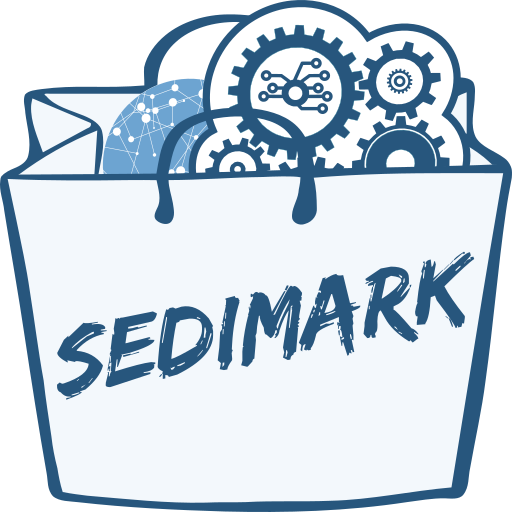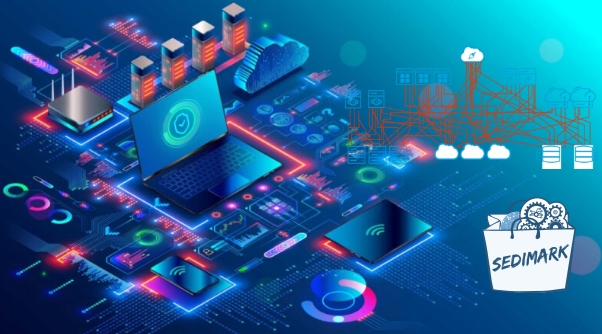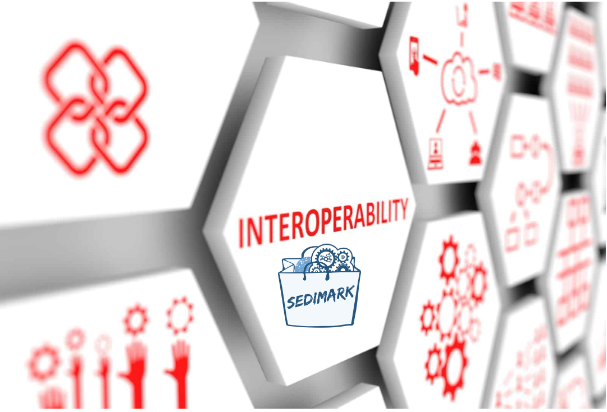Data interoperability refers to the functionality of information systems to exchange data and enable information sharing. More specifically, itis defined as the ability of systems and services that create, exchange, and consume data to have clear, shared expectations for the format, contents, context, and meaning of that data. Thus, it allows to access and process data from multiple sources in diverse formats without losing sense and then to integrate that data for mapping, visualization, and other forms of representation and analysis. Data interoperability enables people to find, explore, and understand the structure and content of heterogeneous data.
In this context, SEDIMARK aims to provide an enriched secure decentralized data and services marketplace where scattered data from various domains and geographical locations within the EU can be easily generated, cleaned, protected, discovered, and enriched with metadata, AI and analytics, and exploited for diverse business and research scenarios. SEDIMARK involves a combination of heterogeneous data, and achieving data interoperability will allow it to maximize the value of the data and overcome the significant challenges posed by distributed assets (heterogeneity, data formats, sources, etc). For this to happen, SEDIMARK will reuse the semantic models developed in previous and ongoing EU initiatives, such as Gaia-X, IDS and NGSI-LD, and propose extensions to them to create one generic semantic model able to annotate and enrich heterogeneous data from multiple domains semantically.
Besides data, interoperability between AI models that emerge from this data is of great interest. In the decentralized environment of SEDIMARK, decentralized training requires that users train their models locally and then exchange model weights for jointly learning a global model. Ensuring that all SEDIMARK users will use the exact same machine learning platform for training the model and the exact same machines is unrealistic. So, SEDIMARK models will be agnostic to underlying platforms and SEDIMARK will provide tools to convert models to various formats and support models to run on machines of various capabilities and on various platforms.
Data interoperability refers to the functionality of information systems to exchange data and enable information sharing. More specifically, itis defined as the ability of systems and services that create, exchange, and consume data to have clear, shared expectations for the format, contents, context, and meaning of that data. Thus, it allows to access and process data from multiple sources in diverse formats without losing sense and then to integrate that data for mapping, visualization, and other forms of representation and analysis. Data interoperability enables people to find, explore, and understand the structure and content of heterogeneous data.
In this context, SEDIMARK aims to provide an enriched secure decentralized data and services marketplace where scattered data from various domains and geographical locations within the EU can be easily generated, cleaned, protected, discovered, and enriched with metadata, AI and analytics, and exploited for diverse business and research scenarios. SEDIMARK involves a combination of heterogeneous data, and achieving data interoperability will allow it to maximize the value of the data and overcome the significant challenges posed by distributed assets (heterogeneity, data formats, sources, etc). For this to happen, SEDIMARK will reuse the semantic models developed in previous and ongoing EU initiatives, such as Gaia-X, IDS and NGSI-LD, and propose extensions to them to create one generic semantic model able to annotate and enrich heterogeneous data from multiple domains semantically.
Besides data, interoperability between AI models that emerge from this data is of great interest. In the decentralized environment of SEDIMARK, decentralized training requires that users train their models locally and then exchange model weights for jointly learning a global model. Ensuring that all SEDIMARK users will use the exact same machine learning platform for training the model and the exact same machines is unrealistic. So, SEDIMARK models will be agnostic to underlying platforms and SEDIMARK will provide tools to convert models to various formats and support models to run on machines of various capabilities and on various platforms.



